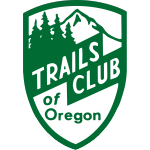Conservation Note for July
This month your Conservation Committee would again like to present you with an article by Mazama Conservation Committee member Kate Evans, previously published in the Mazama Bulletin. It is a bit less timely now, as we are already escaping back into the great outdoors. It is still good, however, to note that our local conservation non-profits continued to be hard at work during their covid confinement, and to take notice of some of the excellent webinars which they produced.
Conservation Webinars in the Time of Corona
By Kate Evans, Mazama Conservation Committee
What can we who love the outdoors do as we slowly begin to emerge from COVID lockdown? You can check out the many hour-long, educational and entertaining webinars conservation organizations have been featuring on their websites.
Friends of the Columbia Gorge (gorgefriends.org) has three Gorgeous Wildlife Webinars, starring American Pikas, native bees, and Western pond turtles. Has anyone ever see a pika in the Gorge? Probably not, but you may have heard their distinctive whistle from scree slopes, and it is fascinating to learn why this alpine critter is doing so well in the Gorge. And who knew that Western pond turtles can live to be 50 or 60 years old? The webinars are available on the Friends You Tube channel, which also has Oregon Field Guide episodes, waterfalls, wildflowers, Kim Stafford’s Gorge haiku, videos of the Eagle Creek fire and many other treasures.
Klamath-Siskiyou Wildlands Center (kswild.org) has a three part Fire and Climate Summit on Reducing Fire Hazards in the Wildland Urban Interface, Aboriginal Fire Stewardship in the Klamath Siskiyou, and Climate Smart Conservation. Columbia Riverkeeper (columbiariverkeepers.org) features two webinars: Removing Lower Snake River Dams to Protect Salmon and Orcas and the High Risks at Hanford.
Oregon Wild (oregonwild.org) has a number of webcasts, including Volcanoes of the Cascades (a fantastic and beautiful one-hour geology lesson), The Mysterious World of the Marbled Murrelet, Staying Connected to Nature, Northwest Forests and Carbon: Science and Solutions, The Return of the Condor, The Lost Sea Otters of Oregon, Hiking the Wonders of Mt. Hood, and Knowing Oregon’s Bees. It’s inspiring to see their films about restoration efforts for the Marbled Murrelets, Condors, and Sea Otters. These are all available under the Oregon Wild Wildblog; they are also continuing to add more webinars.
The Oregon Natural Desert Association (onda.org) has completed their High Desert Academy, their digital event series playing from March through May, but the program is available on their site under Get Involved and Previous Events. Here are the titles: Desert Hiking Tips and Trips; Steen Mt.: Wilderness Haven; Multi-Sport Adventures on the Oregon Desert Trail; Hart, Sheldon, and the Land Between; The Wild Owyhee; Boots, Bikes and Boats in Eastern Oregon; How to Protect Desert Rivers; How to Build a Beaver Dam; and How to Use your Voice for Public Lands. Currently ONDA is featuring discussions about their conservation vision, environmental policy, and the value of wild rivers in the desert. They are also slowly adding stewardship projects to their schedule, including fence building, trail work, and building beaver dam analogs.
We hope you have a chance to enjoy some of these webinars. You can also learn about opportunities for action, such as the Cascade Forest Conservancy’s No Mine on St. Helens, Oregon Wild’s campaign for endangered species status for the Marbled Murrelet, plans to improve the Oregon Forest Practices Act, and the latest 350PDX actions. You can also consult the calendars of these organizations for upcoming stewardship projects.
Beyond conservation efforts, these websites are useful as you plan your post-lockdown adventures. For example, If you are planning a hiking, climbing, biking, camping or backpacking trip to the Oregon High Desert, start with ONDA. For hikes in the Gorge see Friends of the Gorge, www.readysetgorge.com for Public Lands Recreation Site Status, or Oregon Hikers at www.oregonhikers.org.
Stay safe, be well, and enjoy our beautiful Pacific Northwest!
